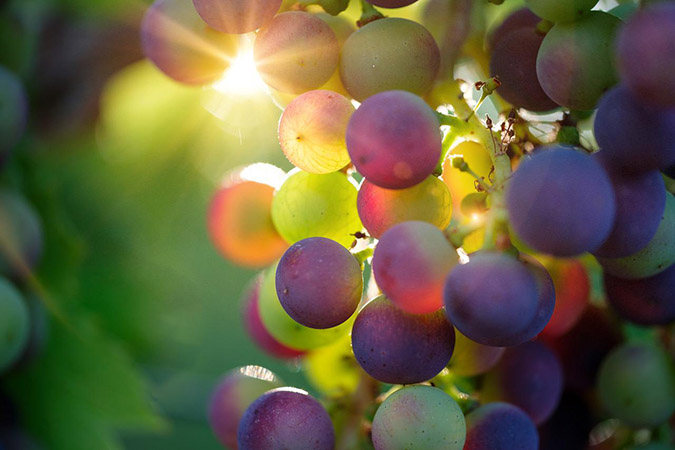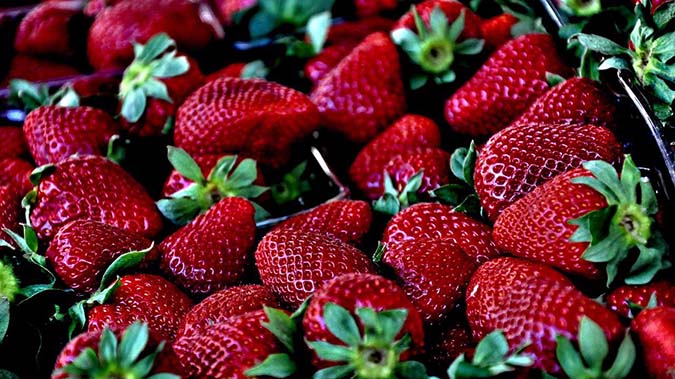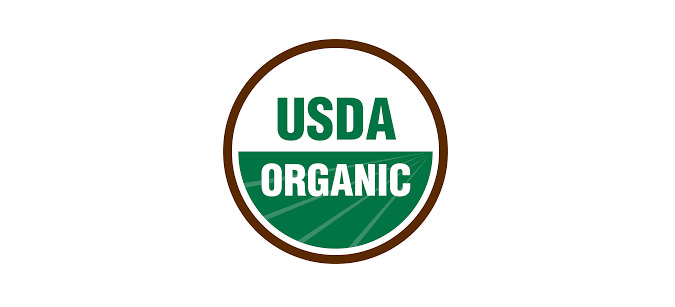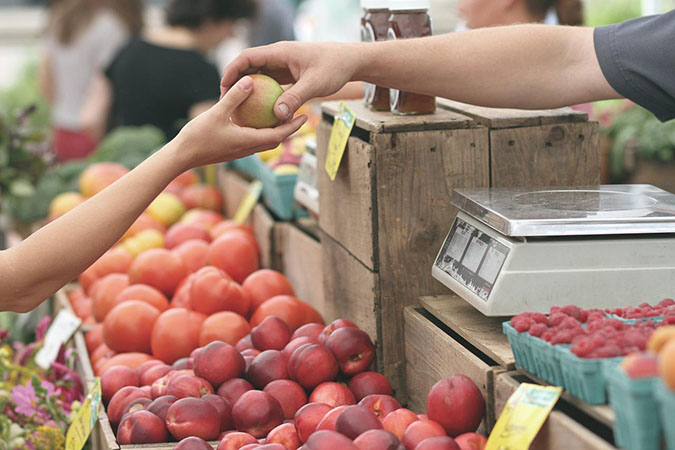We see the USDA organic label just about everywhere, but is organic food really better than conventionally grown? Is it worth the higher cost?

Image by Bruno /Germany from Pixabay
Is Organic Food Better for You?
Those of us who are health-conscious take great care to make sure that the food we’re putting into our bodies is the right food. Over the past few years, organic food has become more and more popular, with grocery stores everywhere offering a wide variety of organic options.
Organic food is better for the environment, with green farming practices that ensure long-term sustainability and minimal environmental impacts. It’s also typically more expensive than non-organic, leaving many shoppers with the choice between the environment and their wallets.
You May Also Enjoy:
“How Do You Go ‘Beyond Organic’?”
But organic food is beneficial for more than just the environment. With minimized synthetic chemicals and cleaner practices, organic food really is worth the extra cost.
What Is Organic Anyway?
Nowadays, we see the organic label just about everywhere, from our groceries to our hair products. But those labels rarely discuss what organic actually means.
Any type of food or crop can be produced organically, including meats and fish. The organic seal is awarded by the USDA after a strict and annual vetting process that ensures the product is produced without the use of pesticides. Many organic foods are produced with sustainable practices, including:
- Cover crops
- Crop rotation
- Regenerative farming
- Natural fertilizer
Organic food must not contain any synthetic pesticides, herbicides, or fertilizers, which can leach into groundwater and cause significant environmental damage. In addition to ensuring sustainable farming practices, avoiding synthetic chemicals also has important implications for human health.
Health Benefits of Organic Foods
Our food choices directly impact our health, and many of the conventionally farmed foods we consume come with unseen effects.
While organic food contains roughly the same nutritional value as non-organic food, conventionally produced foods are usually heavily laden with synthetic chemicals through fertilizers, pesticides, and growth hormones. Organic foods and foods produced with produce inspections have significantly lower detectable levels of pesticides and herbicides, which can help ensure your fruits and veggies are safe.
You May Also Enjoy:
“35+ Powerful, Inexpensive Organic Fertilizers You Can DIY”
Studies have found that organic foods are 48 percent less likely to contain cadmium, which is a known carcinogenic found in many synthetic agricultural chemicals. These chemicals can leach into our food’s cells, and enter our bodies when we eat them—even when we thoroughly wash our produce.
In addition to synthetic pesticides and fertilizers, the heavy use of growth hormones used in meat production can have major effects on consumers. Organically raised livestock is required to be free of any routine antibiotics or growth hormones, and must be fed organically grown feed. Conventionally raised meat, however, doesn’t have these regulations, and conventional farmers can fill their livestock with as many antibiotics and hormones as they see fit. Unfortunately, this can lead to health concerns in those who regularly consume non-organic meat products, including:
- Hormonal imbalances
- Neurodevelopment issues in infants
- Damage to the thyroid, liver, and kidneys
- Damages to reproductive health
While many of these effects are negligible in most people, impacts can be significant in infants, young children, and people who consume large amounts of meat products.
Our food choices play a direct role in our personal health, and by opting for organically produced foods, we can avoid the impacts that conventionally grown foods have on our health and safety. Only foods that are produced under the strict USDA-approved organic standards are allowed to have the organic seal, so if you’re purchasing from your local grocery store, be on the lookout for the certified organic label when shopping.
Look to Local for Organic Without the Label
It’s also worth keeping in mind that you may be able to find local farmers and ranchers in your area who are committed to organic and sustainable practices, but who cannot afford the high expense associated with using the USDA organic seal. Because buying local also cuts down on the use of fossil fuels used when transporting foods cross-country and supports your area’s economy, this can be a win-win-win.
Here are some additional resources to aid you in your local search:
What Do You Think?
Do you believe eating organically grown food is worth the extra expense? What organic foods do you buy? Let us know in the comments below!
__________________
The Grow Network is a participant in the Amazon Services LLC Associates Program, an affiliate program designed to provide a means for our team to earn fees for recommending our favorite products! We may earn a small commission, at no additional cost to you, should you purchase an item after clicking one of our links. Thanks for supporting TGN!

The Grow Network is a global network of people who produce their own food and medicine. We’re the coolest bunch of backyard researchers on Earth! We’re constantly sharing, discovering, and working together to test new paths for sustainable living—while reconnecting with the “old ways” that are slipping away in our modern world. We value soil, water, sunlight, simplicity, sustainability, usefulness, and freedom. We strive to produce, prepare, and preserve our own food and medicine, and we hope you do, too!











COMMENTS(2)
I try to only buy and eat organic foods, for myself and for the environment. I’m but a single person but I know that the organic producer will only do so as long as their products sell so it’s a consistent dollars and cents vote for myself, my family and for the planet. I will be very glad when it becomes more and more commonplace so (I hope) less expensive comparably speaking!
I grow as much organic food as I can, the organic products in the stores are iffy, but 100% better than the chemical laced and GMO food they sell us. I don’t understand why being chemical free (organic) costs more, it makes no sense, to me its more of an extortion fee , we will harm you unless you pay us more!